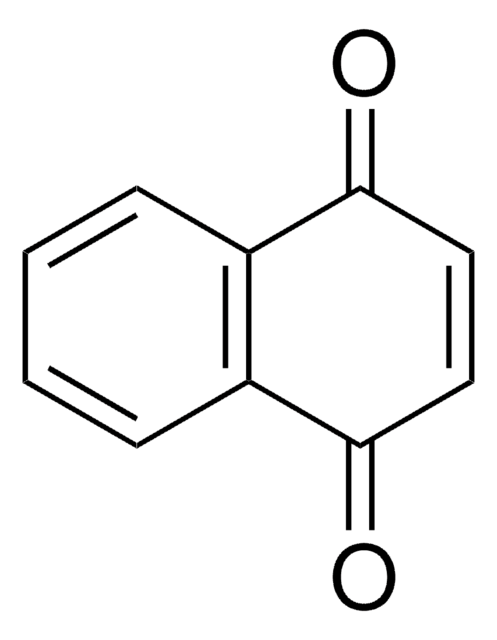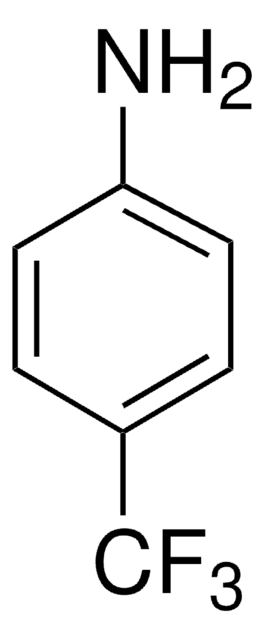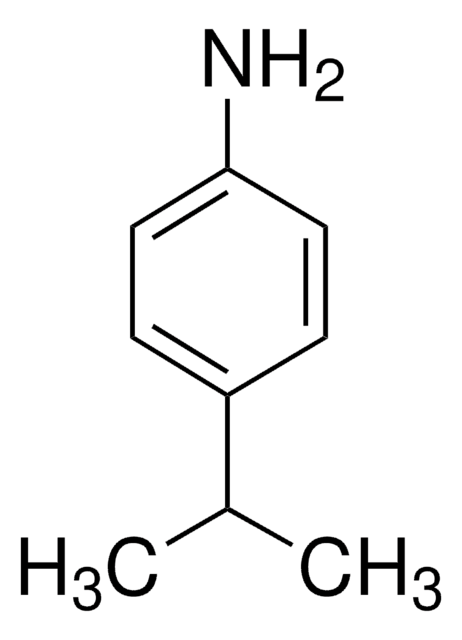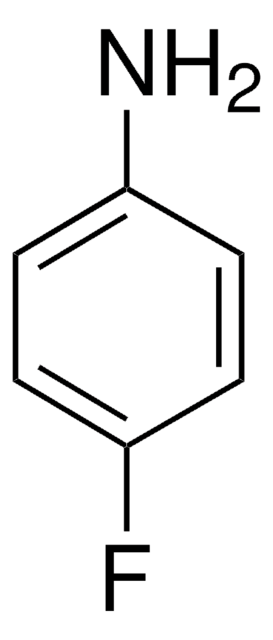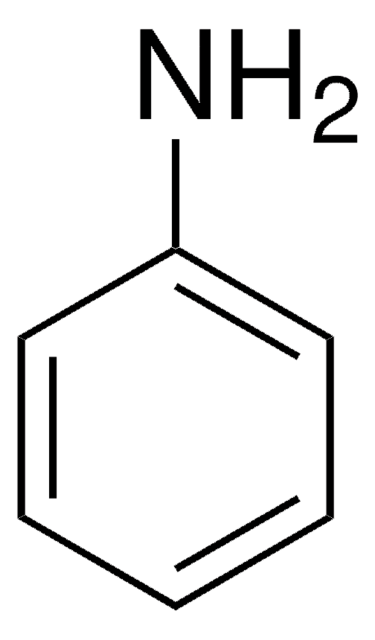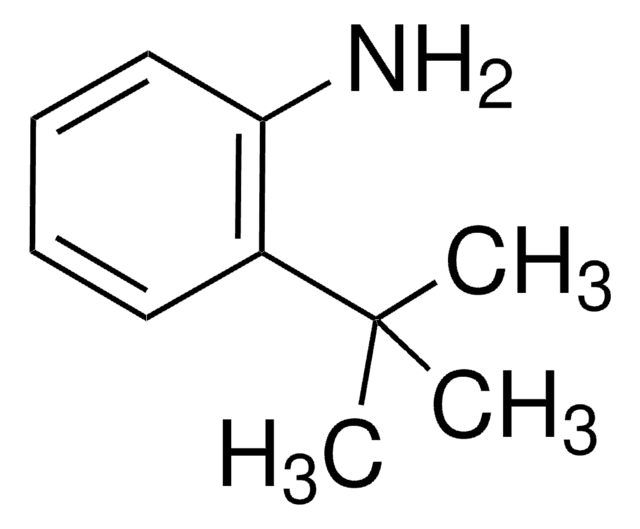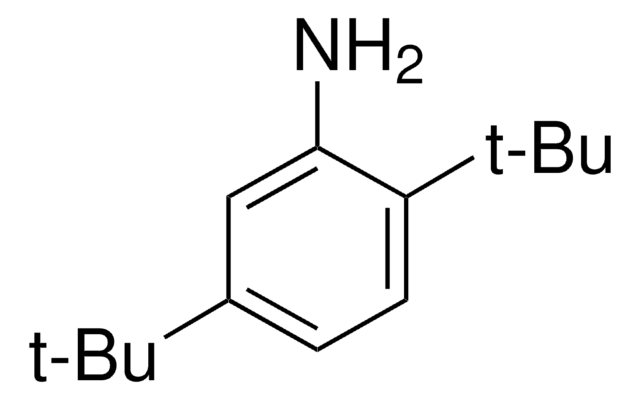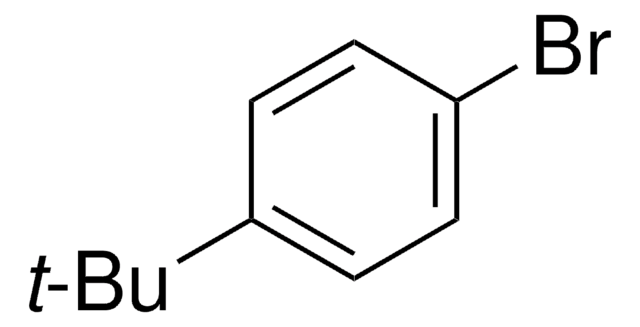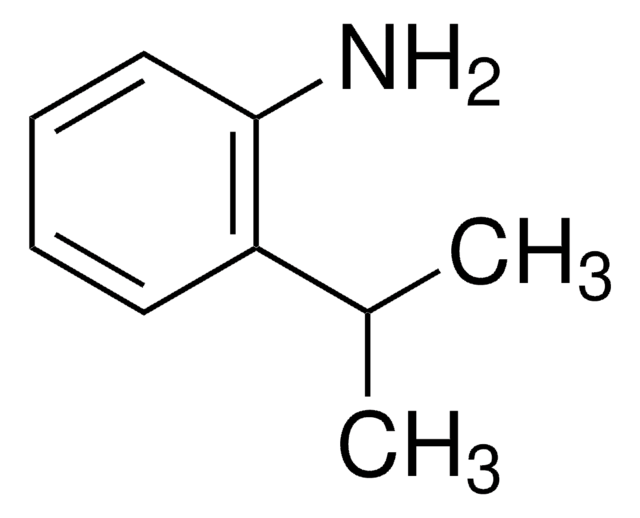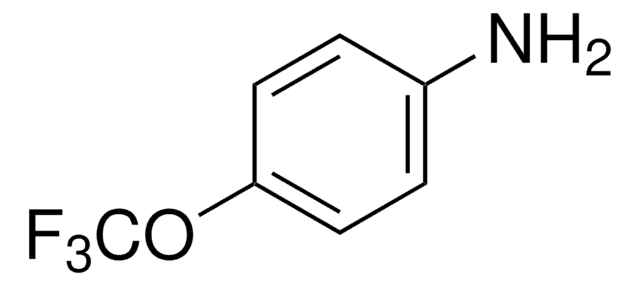209864
4-tert-Butylaniline
99%
Synonym(s):
4-(1,1-Dimethylethyl)aniline, 4-(1,1-Dimethylethyl)benzenamine, 4-Amino-tert-butylbenzene, 4-t-Butylphenylamine, 4-tert-Butylbenzenamine, 4-tert-Butylphenylamine, p-(tert-Butyl)phenylamine, p-tert-Butylaniline
About This Item
Recommended Products
Assay
99%
form
liquid
refractive index
n20/D 1.538 (lit.)
bp
90-93 °C/3 mmHg (lit.)
mp
15-16 °C (lit.)
density
0.937 g/mL at 25 °C (lit.)
SMILES string
CC(C)(C)c1ccc(N)cc1
InChI
1S/C10H15N/c1-10(2,3)8-4-6-9(11)7-5-8/h4-7H,11H2,1-3H3
InChI key
WRDWWAVNELMWAM-UHFFFAOYSA-N
Looking for similar products? Visit Product Comparison Guide
General description
Application
- 4-tert-Butyl-4′,4″-dinitrotriphenylamine, new triphenylamine-containing diamine monomer
- 2-oxopyrimido[4,5-d]pyrimidin-5(6H)-one
Signal Word
Warning
Hazard Statements
Precautionary Statements
Hazard Classifications
Eye Irrit. 2 - Skin Irrit. 2 - STOT SE 3
Target Organs
Respiratory system
Storage Class Code
10 - Combustible liquids
WGK
WGK 2
Flash Point(F)
215.6 °F - closed cup
Flash Point(C)
102 °C - closed cup
Personal Protective Equipment
Regulatory Listings
Regulatory Listings are mainly provided for chemical products. Only limited information can be provided here for non-chemical products. No entry means none of the components are listed. It is the user’s obligation to ensure the safe and legal use of the product.
FSL
Group 4: Flammable liquids
Type 3 petroleums
Hazardous rank III
Water insoluble liquid
JAN Code
209864-5G:
209864-BULK:
209864-VAR:
209864-25G:
Choose from one of the most recent versions:
Already Own This Product?
Find documentation for the products that you have recently purchased in the Document Library.
Customers Also Viewed
Our team of scientists has experience in all areas of research including Life Science, Material Science, Chemical Synthesis, Chromatography, Analytical and many others.
Contact Technical Service